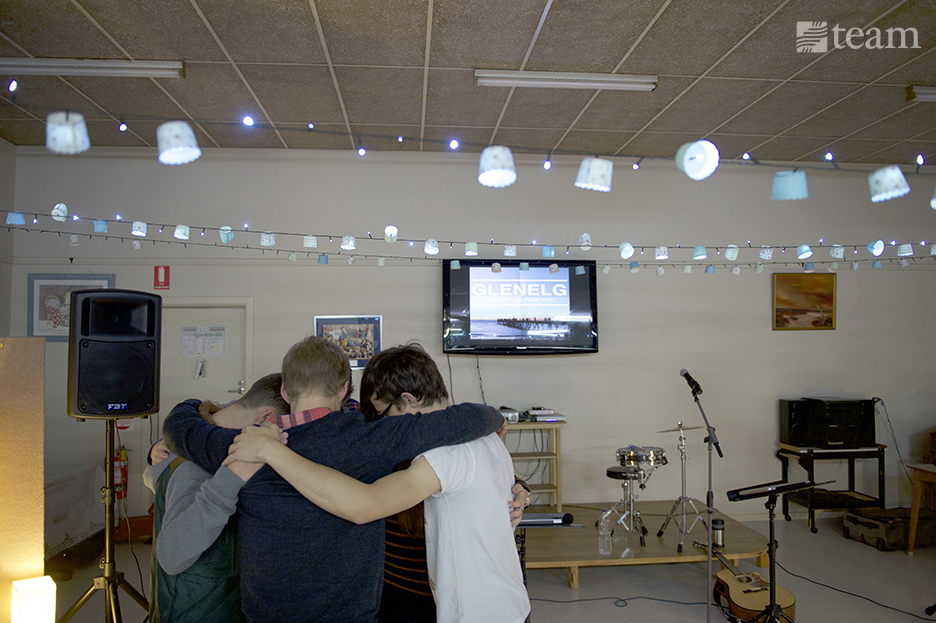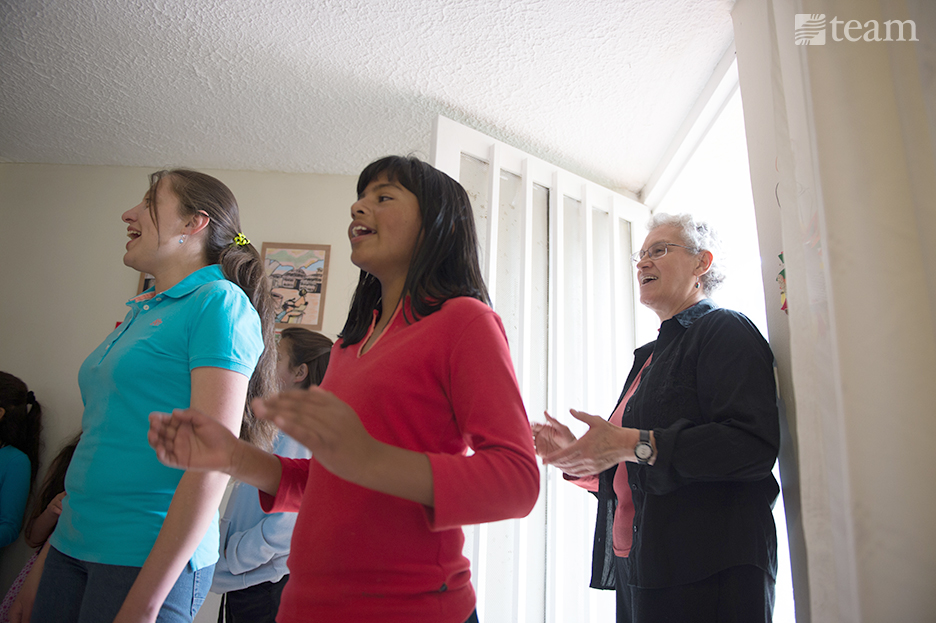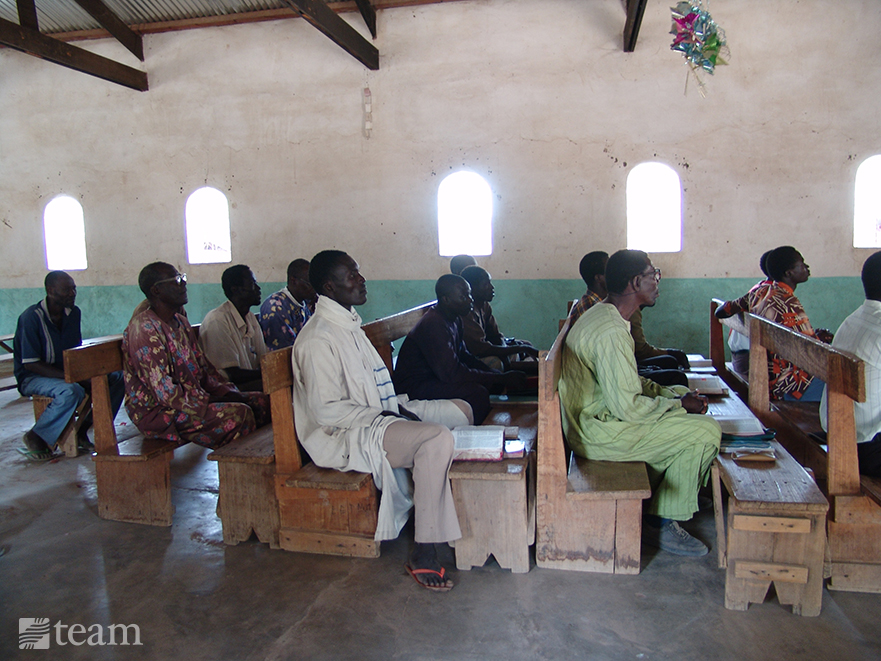
Missionary Life
Why True Church Planting Must Start with Conversion
April 20, 2021
by Dietrich Schindler

Many contemporary church-planting ministries are conceived much like a business. The model centers on administrative, gifted leadership that guides already-committed Christians to organize the birth of a new church.
But can I be bold and say this isn‘t a true “birth,“ but rather a reorganization of believers from one location to another? Therein lies the crisis of contemporary church planting in the Western world: organizing churches without birthing them.
See if this sounds familiar: A called and gifted leader inspires other Christians to start a new church. They meet regularly to pray, plan and lay out a strategy they’ll use to plant the new church. Often, this involves what the worship service will look like and what kinds of programs the church will offer.
Unaware of what’s happening, the leaders of the new venture often reduce the meaning of church to an event, equating the church with a worship service. The worship service becomes the ministry’s driving force, which quickly translates into attention to numbers, giving, staff, technology and image projection.
This commonly held assumption about church planting is depriving people of discovering the hope of Christ at a time when we desperately need that hope.
If we commit our church-planting efforts into the hands of the god-of-what-works, we shouldn‘t be surprised when the wheels come off.
Total Surrender Over Pragmatism
Truly, we need the Holy Spirit in our church planting! When the Holy Spirit is in the driver’s seat, radical and beautiful things happen. We give up control, we’re humbled. We seek the face of the Father above success and invest in less-than-perfect people. The antidote to pragmatism is prayer — total surrender and dependence upon God to be in charge.
In contemporary church planting, we tend to neglect calling people outside the church to follow Jesus in the initial stages. Instead, we favor the gathering of a core group of believers. Only after having convened a team of highly committed people does the church-planting leader begin to evangelize. I firmly believe the need for today is to return to an emphasis on conversion-based church multiplication that produces organically grown multiplying churches.
Conversions that Grew the Church

Conversion growth is a gift from God. So why is what was normative in the New Testament era considered a church-planting anomaly today?
In the early church, all churches started by conversion. The apostle Paul began his church-planting ministry in Europe after an initial conversion to Jesus Christ and a time of discipleship.
When we read through the Book of Acts, Luke uses the familiar phrase “… and they were added to their number” (2:41). On five different occasions in Luke’s account, we come across the Greek term prostithymi (meaning “to add to” or “to grow”). The term described conversion growth that grew the Church.
Scripture repeatedly shows us that the church in Jerusalem was a church that was started by means of conversion growth through Peter’s preaching in the power of the Holy Spirit. The church in Antioch started with the newly converted as well. And the first church in Europe was in Philippi, started the same way.
Conversion growth is a gift from God. So why is what was normative in the New Testament era considered a church-planting anomaly today?
What’s Holding Us Back?
Based on what I’ve seen, we can look at five reasons why we’re not seeing people coming to Christ as the foundation for forming new churches. Check these out and see if any or all of these resonate.
1. The people we‘re trying to reach have already been discipled — by popular culture.
In my European context, this translates to freedom from religion to personal preference. The greatest sin in secular European culture is intolerance: daring to tell another person they’re wrong to hold to their “truth.”
Today, many truths are based upon personal preference. We shop today in what sociologist Bryan Wilson calls a “random supermarket of knowledge.” All secular people possess spirituality (just look at the popularity of icons like Oprah Winfrey). We live in an age in which most people believe that life can be lived well without God. In neglecting Him, they insert the conviction that human agency is enough for humans to flourish.
2. Our expectations of what God can do have been domesticated.
The common assumption of how we start churches reflects how God has become too small to many of us. Instead of allowing the New Testament to influence how we go about planting churches, we bow to commonly held assumptions.
Think about a circus elephant. At a very young age, the elephant is chained to a stake in the ground. Try as he might, the little creature is no match against the strength of the stake and the chain. As it grows older, it gets stronger. Yet the elephant, although physically easily able to free himself from the confines of the stake, can’t do it. He has been domesticated. He has been trained to believe that the chain and the stake will dominate his life. And it does.
We have been trained that there is only one way to go about church planting, and that way is to organize it instead of expecting God to pneumatize it. Have we become the elephant chained to the stake, unable to conceive that God might have a better way?
3. Our church-planting approach is pastoral when it needs to be missional.
I don’t think you’ll argue with me that most church planters are shepherds who occasionally function as missionaries. We need the reverse: missionaries who occasionally function as pastors.
I get it. Pastors functioning as church planters is an understandable phenomenon. We receive our training from professors who are teachers. Very rarely do apostles and evangelists become educators because apostles and evangelists would rather be on the front lines than talking about what it‘s like being on the front lines while grading papers.
The pastoral approach, steeped in theological education, has seeped into our approach to church planting. The pastoral church planter will spend large amounts of their time behind a study desk because that’s what they were taught: prepare well, feed the flock, and don‘t neglect the study of the Word. The problem is this approach, while understandable, often leads to concentrating on the found instead of seeking out the lost.
4. Our lack of faith in what God wants to do prevents us from seeing conversion-based church planting.
One of the gravest reasons why we‘re not seeing conversion-based church planting is because we‘re not looking for it! And tragically, we‘re not looking for it because we‘re not looking to God for it. The Lord loves big, hairy, audacious faith.
What‘s the difference between great faith and little faith?
Great faith always trusts God for what‘s beyond our human means and capacity to produce. Little faith trusts God for what we can usually engineer by human effort — denigrating church planting to what we can do. If we ourselves can get the job done, there is little need for great faith. Great faith is seen in offensive praying — thanking God for the miracles of new birth before they happen. Little faith is seen in defensive praying — “Lord, keep us safe, be with us, protect us, heal us, help us . . .” Little faith is reflected in “us-prayers.”
Church planting is like creation. God created our world twice. The first creation was a vivid picture of what the fully created world would look like living in the mind of God—His own dream or vision. The second creation was when God spoke, “and it was . . .” Churches are always planted twice: first in the hearts of the church planters, and then visibly.
The vision is where the action is. We need to learn to pray along our vision of conversion-based church planting, instead of along the lines of what has always been.
5. We lack role models of conversion-based church planting.
Have you ever seen or been a part of a church that started with new believers? Most of us haven‘t witnessed, nor have we been a part of, conversion-based church planting. In Germany, we‘re seeing pockets of hope.
In Berlin, Marcus Rose and his organization, Hope Germany, have planted hundreds of conversion-based mini-churches, mostly in urban areas similar to the city’s demographics. Marcus and his co-workers frequent bars and night clubs, share the gospel with patrons and see some of them come to faith in Christ.
What they do next is brilliant. Rather than take new Christians out of their context (bars and clubs) and relocate them to another place, Marcus and his friends keep them where they found them. New mini-churches are birthed in solidly secular environments, and new believers are shepherded to grow up in Christ in those environments. Now, many of their new churches have more not-yet-Christians in them than followers of Jesus.
By God’s awesome grace, my wife Jan and I saw conversion happen in the church we planted in Mannheim about 40 miles outside of Frankfurt. In seven years, the church has experienced a 60 percent conversion rate! Evangelism was always in our prayers, on our lips, guiding our steps. And the Lord blessed abundantly.

Conversion-based church plants are abundant in the Global South — and the same is possible in the West.
To find models of conversion-based church planting, we travel to Africa, Asia and South America. We get on airplanes, submerge ourselves in a different culture and observe many great movements of God on other continents.
But I’m convinced that we can experience here in the West what we‘re so sorely lacking. What would keep your church and churches in your town or city from becoming the next case study of conversion-based church planting? We need to become the case study our society needs. Let’s show others that conversion-based church planting is indeed possible, even where we live!
This article is based on the new eBook, Shift: The Road to Level 5 Church Planting Multiplication, by Dietrich Schindler. Get your copy today!


